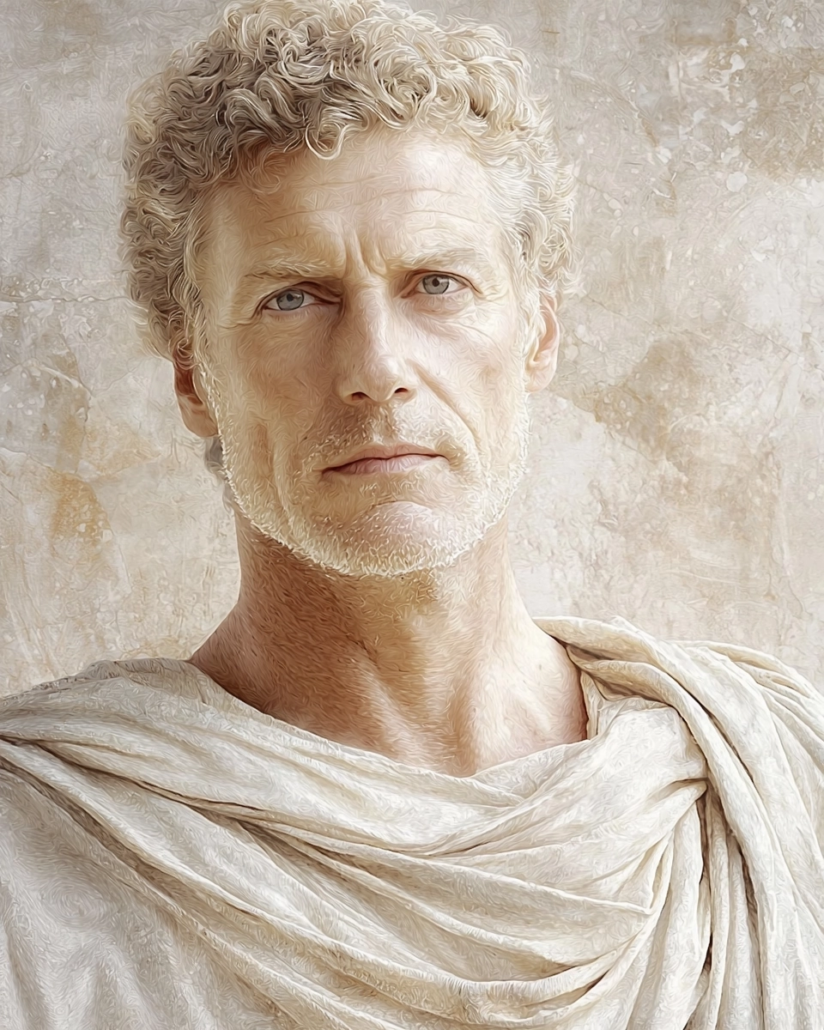Dio Chrysostom: Rhetoric and Stoic Wisdom 🎙️
The Golden Voice of Stoicism
Dio Chrysostom (c. 40 – c. 115 CE) was a prominent philosopher and orator from the Roman Imperial period, renowned for combining Stoic philosophy with eloquent rhetoric. Known as the “Golden Mouth,” Dio crafted speeches that centered on virtue, ethical behavior, and the pursuit of inner tranquility – key Stoic themes that continue to inspire.
Historical Context and Influence
This philosopher, born in Prusa (now modern-day Turkey), lived during a politically volatile time. Exiled by Emperor Domitian due to his critiques, Dio traveled through various cities, including Athens and Alexandria, where he shared Stoic ideals through his influential speeches. His famous “Borysthenitic Oration” discussed ethical and social issues in barbarian communities, making him a respected voice of philosophical reason. Deepen: Britannica
Why are his teachings and views so valuable?
Dio Chrysostom’s teachings on achieving inner peace and self-control remain relevant in modern society. His guidance on maintaining calmness and personal integrity provides a roadmap for facing life’s challenges with resilience. Explore more: Stoicism Today
Key Teachings
Known for emphasizing the importance of truth and virtue in public life, Dio believed that ethical principles could be communicated effectively through skilled rhetoric. His philosophy had a lasting impact, combining Stoic insights with the art of persuasion. Deepen: Wikipedia
- Ethics through Oratory: Dio used rhetoric to convey Stoic ethics, aiming to inspire audiences toward a virtuous life.
- Self-Control and Inner Peace: He taught that true freedom is achieved through mastery over one’s desires and emotions.
- Resilience through Adversity: Dio’s exile reinforced his belief in enduring hardship as a means to personal growth and strength.
Legacy
- “Dio Chrysostom influenced not only his students but also later thinkers, including Roman Stoics like Marcus Aurelius and Epictetus.”
- “His thoughts on civic duty and personal virtue deeply influenced Stoicism and its development.”
- “Through his fusion of rhetoric and philosophy, Dio bridged ethical discourse with practical oratory.”
Stoic cardinal virtues that he embodied
- “Wisdom – Dio’s oratory combined intellectual insight with practical wisdom.”
- “Justice – His critiques of authority showed a commitment to truth and fairness.”
- “Courage – Dio’s willingness to speak out, even at personal risk, exemplified moral bravery.”
- “Temperance – Despite his fame, he used his rhetorical gifts with humility and restraint.”
Quotes attributed to him
- “True freedom lies in controlling one’s own mind.”
- “The wise seek peace within themselves.”
- “Courage is the foundation of all virtue.”


